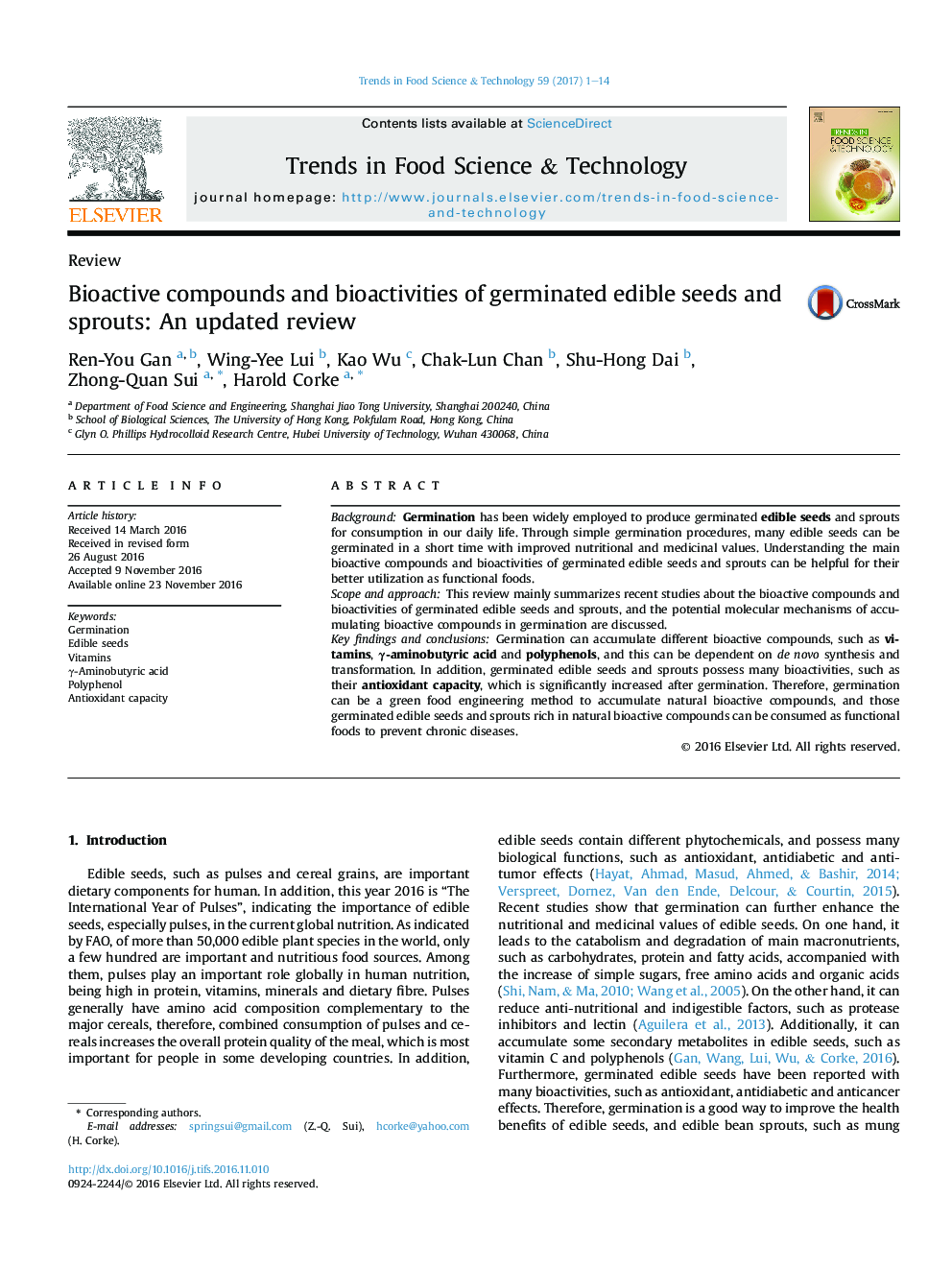| Article ID | Journal | Published Year | Pages | File Type |
|---|---|---|---|---|
| 5523754 | Trends in Food Science & Technology | 2017 | 14 Pages |
â¢Germinated edible seeds and sprouts can accumulate bioactive compounds.â¢Polyphenol synthesis follows a transformation pathway during germination.â¢Antioxidant capacity generally increases during germination.â¢Germinated edible seeds and sprouts are valuable functional foods.
BackgroundGermination has been widely employed to produce germinated edible seeds and sprouts for consumption in our daily life. Through simple germination procedures, many edible seeds can be germinated in a short time with improved nutritional and medicinal values. Understanding the main bioactive compounds and bioactivities of germinated edible seeds and sprouts can be helpful for their better utilization as functional foods.Scope and approachThis review mainly summarizes recent studies about the bioactive compounds and bioactivities of germinated edible seeds and sprouts, and the potential molecular mechanisms of accumulating bioactive compounds in germination are discussed.Key findings and conclusionsGermination can accumulate different bioactive compounds, such as vitamins, γ-aminobutyric acid and polyphenols, and this can be dependent on de novo synthesis and transformation. In addition, germinated edible seeds and sprouts possess many bioactivities, such as their antioxidant capacity, which is significantly increased after germination. Therefore, germination can be a green food engineering method to accumulate natural bioactive compounds, and those germinated edible seeds and sprouts rich in natural bioactive compounds can be consumed as functional foods to prevent chronic diseases.
